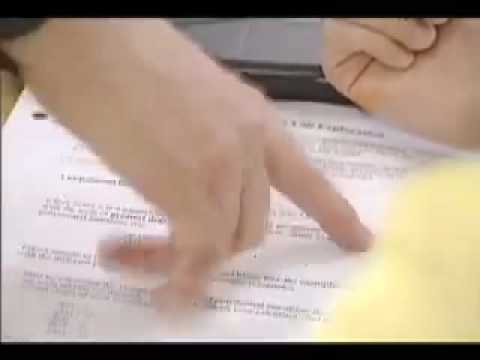It’s that time of the year when homework assignments are ramped up. Another month or two, and our kids will be homework-free! Before that, however, it can get a little intense with projects, papers, tests, and so forth! At the same time, the days are longer and our yard and pool entice all of us. With that in mind, I thought I’d devote this week’s post to thoughts about homework.
Last fall, I had the opportunity to meet with Laura Rogers, licensed psychologist, licensed school psychologist and co-director of the school psychology program at Tufts University. Our conversation highlighted to me the necessity of focusing on the big picture even as we attend to the day to day drop-offs, pickups, errands, and making sure that homework is completed. Laura pointed out the overarching question that many parents of school-aged children needed to consider was: How can we create a family culture and structure to provide support to our kids without being intrusive, regardless of the content or domain area?
Laura recalled one family she worked with where all family life was organized around the younger daughter’s gymnastics schedule. Their son was interested in science and nature but was left mainly to his own devices as far as furthering this interest went. Dinner was unpredictable and study time was not organized owing to a focus on the gymnastics schedule. Their son needed a lot more support and structure than what was being provided. The parents did not considered what it meant to provide structure to a kid whose interests were more home-based, even while they served their daughters’ needs.
Here is a set of questions that families can ask themselves about how they organize themselves:
- What does each kid end up doing after school and where?
- How often do the kids go to bed after their official bedtime?
- Where do they do their homework?
- How are you, as parent, involved in their homework?
If the family’s after-school schedule revolves around one child’s activity, Laura pointed out that siblings often live in a very disorganized homework environment. If after-school activities result in routinely late bedtimes, they need to be reassessed. Further, all the things we do and DON’T DO convey frequently unintended messages to our kids about the purpose and value of homework, as well as their own abilities as doers of their homework. Laura recommended reading Mel Levine who talks about the way we organize family culture. What happens in the home? Do children see their parents reading or writing? If they don’t, what messages do kids receive about what home activities are valued and respected – particularly young adolescents?
Laura helped design the Parker School, now 20 years old, in Devon, MA. Just as she hopes that parents will look at how their family culture might undermine the very goals they are trying to achieve, Theodore Sizer, author of Horace’s Compromise (Laura’s recommended read), suggested that parents do the same thing with schools.
Parents need to understand the rationale behind homework that is assigned to their child, in order to support them. In order to understand the rationale, you have to understand the rules for learning at play in the classroom together with what they are taught.
She recalled: In the Parker School, kids had to take responsibility for own learning and the 7th and 8th grade years were really teaching them what does it mean to take responsibility for their own learning, to be engaged, set goals, reach them, celebrate them.
The psychological agenda as much as anything else is what is key. This focus on learning to be responsible for their own learning made some parents anxious.
We did run a Homework club for 7th grade boys, which worked really well. I think that parents are eager to know how to do these things. If they can step back just a little bit to get a broader perspective, they might be able to open some doors for their kids.
So the parents’ task is: how to create a structure where kids can do homework and your job is not to tell them whether they did it right or wrong. That’s the teacher’s job. Your job is to tell them they can have all the milk and cookies they want after they get it done, or something like that. And then they can go out and play.
Your job is to create (what Ted Sizer called) a climate of trust and unanxious expectation. Parents think that once it’s their job to get their kids to do their homework, that it’s also their job to get them to do it in a way that they are proud of.
Another question that Laura suggested families could ask of themselves was an interesting one: What’s scarce and what’s plentiful in your family? Post your comments here as you try to consider the big picture in your family life.
Some Interesting Links:
Theodore Sizer’s 10 Principles used by the Coalition of Essential Schools
Video link to Lesson at Parker School
My Daughter’s Homework is Killing Me
About Laura Rogers


Laura is Senior Lecturer and Co-Director, School Psychology Program at Tufts University, MA. She has an Ed.D., Harvard University, Ed.M., Harvard University, and earned her B.A., Mount Holyoke College.
She is a licensed psychologist and a licensed school psychologist. Laura served as the school psychologist and special education administrator in the Francis W. Parker Charter Essential School, a school she helped to found. She also helped to develop the New Teacher Collaborative, a site-based teacher preparation program in the Theodore R. Sizer Teachers Center. Laura brings a deep commitment to understanding the developmental pathways of child and adolescent experiences to her work. She is particularly interested in helping teachers and others stay attuned to how children and adolescents experience instructional practices. Prior to her work in the Parker Charter School, Laura worked as a clinician in Massachusetts, Connecticut, and Kathmandu, Nepal. Including in private practice, prisons, a health clinic, and a child guidance clinic. She teaches courses in adolescent development, serving children with special needs, assessment, and school-based consultation.








1,250 comments